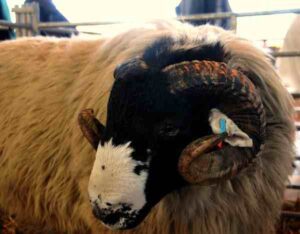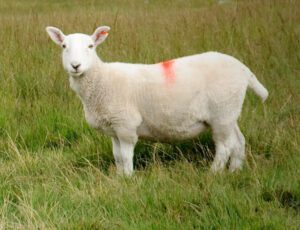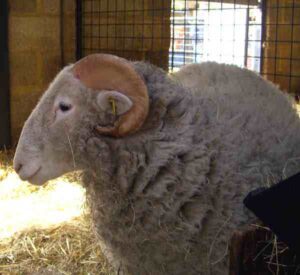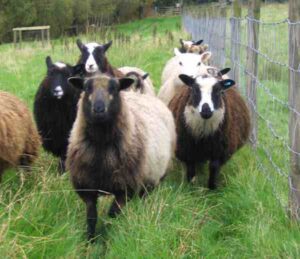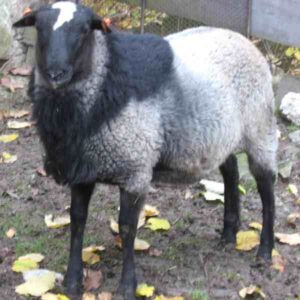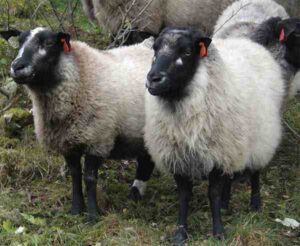The Scottish Blackface sheep is a breed of domestic sheep from Scotland. It is the most common breed of domestic sheep in the United Kingdom.
The breed is known by some other names such as Kerry, Linton, Blackfaced Highland, Scottish Mountain, Scotch Blackface, Scotch Horn and Scottish Highland. Exact origins of this breed are unknown.
The Scottish Blackface sheep was developed on the Anglo-Scottish Border, but it is not clear exactly when it became a distinct breed.
The breed replaced the Scottish Dunface or Old Scottish Short-wool, a Northern European short-tailed sheep type probably similar to the modern Shetland sheep.
Currently it is the most numerous breed in the British Isles, and roughly 30% of all sheep in the United Kingdom are Scottish Blackface sheep.
This breed epitomises the mountain sheep. Over the years, several types of this breed have developed. But the most common type is the Perth variety, which has large frame, with a longer coat.
And the Perth variety is mainly found in north-east Scotland, Cornwall, Devon and Northern Ireland. The breed was first introduced to the United States in June 1861.
Currently the breed is raised mainly for meat production. Read some more information about this breed below.
Scottish Blackface Sheep Characteristics
Scottish Blackface sheep is a medium to large sized animal with very beautiful appearance.
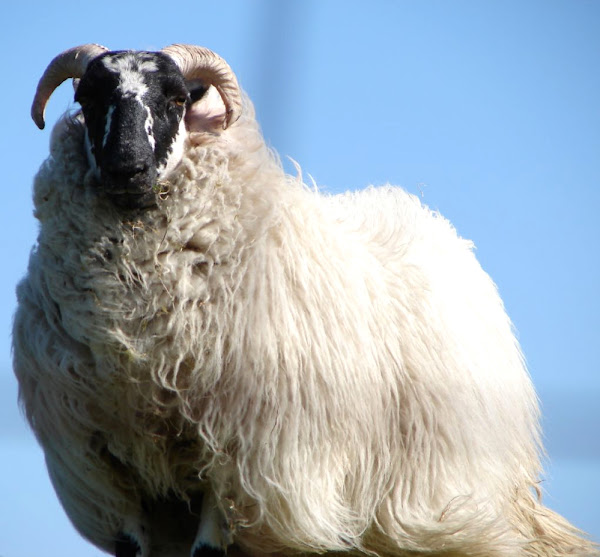
As the name suggests, face of of these animals are black, sometimes with white markings. Their legs are black in color and relatively shorter.
Both rams and ewes are usually horned, and their horns are long and curved. They are large framed, with a longer coat. Photo and info from Wikipedia.
Uses
This is a meat sheep breed. It is raised mainly for meat production.
Special Notes
The Scottish Blackface sheep are pretty hardy and strong animals. They are well adapted to their local climates. They are most common and numerous breed in the British Isles.
The Scottish Blackface ewes are excellent mothers. And they will often attempt to defend their lambs against predators.
The ewes are excellent milkers and are able to produce a lamb crop and a wool clip even when on marginal pasture. The breed is also pretty good for wool production.
Currently the Scottish Blackface sheep is found in the Highlands and Borders of Scotland, Pennines, Dartmoor and Northern Ireland.
They have also been exported to the United States, Italy and Argentina. However, review full breed profile of this breed in the following chart.
| Breed Name | Scottish Blackface |
| Other Name | Also Known by some other names such as Kerry, Linton, Blackfaced Highland, Scottish Mountain, Scotch Blackface, Scotch Horn and Scottish Highland. |
| Breed Purpose | Meat |
| Special Notes | Strong and hardy, excellent meat breed, well adapted to a variety of climates, most numerous breed in the British Isles, ewes are excellent mothers and are excellent milkers, pretty good for wool production |
| Breed Size | Medium to large |
| Horns | Yes, both rams and ewes are horned |
| Climate Tolerance | All climates |
| Color | White |
| Rarity | Common |
| Country/Place of Origin | Scotland |

